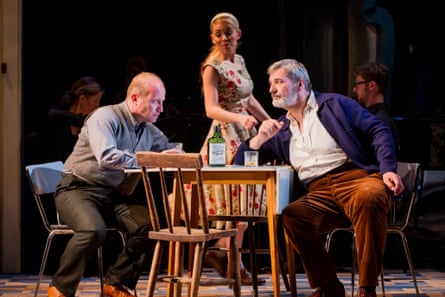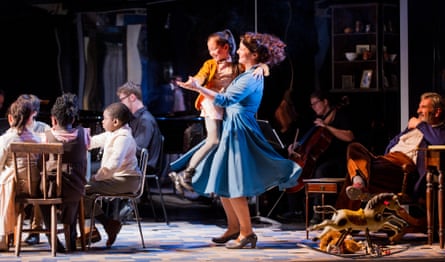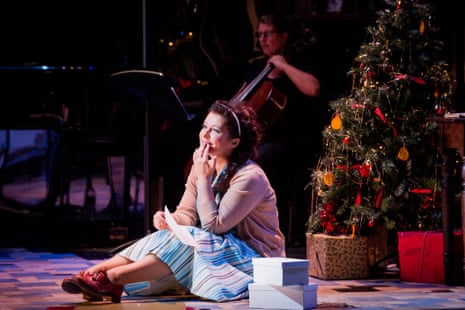Oliver Platt’s production of Massenet’s lyric drama for English Touring Opera has some unusual features. Visually, it is a simplified version, with designer Oliver Townsend providing a single interior set, and one or two secondary characters have gone missing: the village boozer Schmidt – ably sung by Jeff Stewart – loses his drinking companion Johann, many of whose lines are transferred to Michael Druiett’s solidly respectable Bailiff, who thereby gains an unexpected fondness for the bottle.
The small group of the Bailiff’s young children, though, remains; at the Britten theatre the perfectly rehearsed team comes from Vauxhall primary school, south London.
More crucially, Massenet’s sizable late-Romantic orchestra is reduced to four players – violinist Philippa Mo, cellist Morwenna Del Mar, clarinettist Oliver Pashley and pianist Iain Farrington, who directs his own arrangement from the keyboard and has done an outstanding job in retaining the spirit of the original in his skilful chamber rescoring.

But for many of those who know the opera, the most surprising innovation will be to hear the title role sung, with suitable transpositions and other alterations, by a baritone instead of a tenor. This unusual version is actually by Massenet, who adapted the role to please the star baritone Battistini, though the result feels workmanlike rather than a meaningful creative alternative. On this occasion, the sober-toned Ed Ballard does what he can with it, but the lower edition is less glamorous than the original.
Platt’s staging shifts the opera from 18th-century Germany to the 20th-century American midwest. Dramatically, it’s a largely convincing reorientation. Ballard’s nerdy Werther feels appropriately buttoned up until his love for the equally vocally restrained – and married – Charlotte (Carolyn Dobbin) bursts forth in act three. In this version, however, with a baritone Werther, the contrast between Charlotte’s forbidden lover and her dull but reliable husband Albert – also a baritone – is reduced, especially as Simon Wallfisch’s Albert is given more romantic appeal than usual as a uniformed GI home on leave. Vocally, the two are much of a muchness.
The evening’s finest performance comes not from the members of this tense love-triangle, but from Charlotte’s less complicated younger sister Sophie, sung by Lauren Zolezzi, whose button-bright soprano sparkles on her every appearance. Even with some oddities and limitations, she and the rest of the cast ensure that enough of the emotional power of the piece comes over to make this a rewarding evening.
At Britten theatre, London, 8 October. Box office: 020-3761 7069. Then touring until 18 November.


Comments (…)
Sign in or create your Guardian account to join the discussion